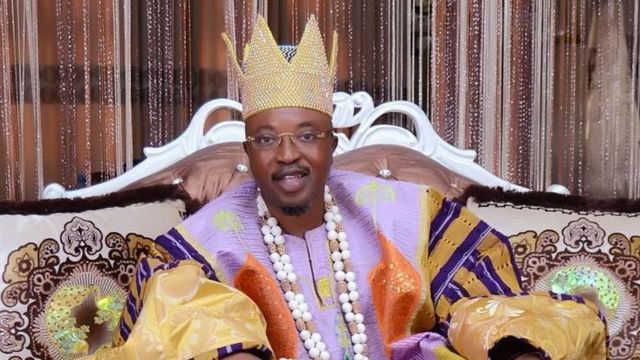The Discourse on Royal Titles and the Strengthening of Inter-Kingdom Bonds
The visit of Oba Abimbola Owoade, the Alaafin of Oyo, to the palace of Oba Abdulrasheed Akanbi, the Oluwo of Iwoland, sparked a significant discussion about traditional titles and their implications within the Yoruba cultural landscape. Oluwo Akanbi expressed his desire to adopt the title "Alaafin of Iwo," a move that underscores the historical connections and perceived hierarchy among Yoruba kingdoms. This request, while seemingly simple, delves into the complex web of history, tradition, and power dynamics that shape the relationships between these ancient kingdoms. The Oluwo’s rationale for adopting the Alaafin title stems from his belief in its supremacy among Yoruba traditional titles, tracing its origins back to the revered Oduduwa lineage.
The Oluwo’s assertion of the Alaafin title’s preeminence highlights the importance of lineage and historical connections in Yoruba royalty. By associating the title with Oduduwa, the progenitor of the Yoruba people, he elevates its status and links it to a shared ancestry. This act also reflects the Oluwo’s perspective on the historical relationship between Iwo and Oyo, suggesting a connection that warrants the adoption of a similar title. Furthermore, it reveals the Oluwo’s understanding of the Alaafin’s historical prominence and influence within the Yoruba political and cultural sphere. This desire to adopt the Alaafin title can be interpreted as an attempt to elevate Iwo’s status within the Yoruba kingdom hierarchy.
The Alaafin’s visit itself, however, was primarily motivated by gratitude and a desire to maintain the existing amicable relationship between Oyo and Iwo. He acknowledged the Oluwo’s presence at his coronation ceremony and his congratulatory message upon being named Alaafin-elect. This reciprocal gesture of visiting the Oluwo’s palace signifies the importance of maintaining inter-kingdom relationships and reinforcing the bonds of mutual respect and recognition. The Alaafin’s visit, thus, represents a continuation of the historical ties between Oyo and Iwo, further strengthening the cultural and political connections between the two kingdoms.
The historical relationship between Oyo and Iwo, as emphasized by both monarchs, forms the bedrock of their current interaction. The Alaafin specifically referenced the positive relationship fostered by his predecessor, the late Oba Lamidi Adeyemi III, with Iwo, emphasizing the importance of continuity in these inter-kingdom connections. This historical context underscores the significance of the Alaafin’s visit, not merely as a courtesy call but as a reaffirmation of the long-standing ties between Oyo and Iwo. The emphasis on continuity suggests a shared desire to maintain peace, cooperation, and mutual support between the two kingdoms, which contributes to the overall stability and prosperity of the Yoruba region.
The Alaafin’s call for unity and cooperation within Iwo highlights the importance of internal cohesion for the overall development of the kingdom. He urged the other traditional rulers in Iwo to support and cooperate with the Oluwo for the betterment of the town. This advice underscores the importance of a unified front within the kingdom to address challenges and pursue common goals. By emphasizing internal harmony, the Alaafin implicitly acknowledges that a strong and united Iwo can better contribute to the stability and progress of the wider Yoruba community. His call for unity serves as a reminder that internal divisions can weaken a kingdom and hinder its ability to thrive.
The Oluwo’s request to be addressed as "Alaafin of Iwo" raises several questions about the implications of such a title change. While the Oluwo emphasized his respect for the Alaafin of Oyo and the historical significance of the title, the potential ramifications within the Yoruba traditional hierarchy need careful consideration. The adoption of a similar title could be interpreted as a challenge to the existing hierarchy and potentially create confusion or tensions among other Yoruba kingdoms. A thorough examination of the historical context and the sensitivities surrounding traditional titles is essential before any such change is implemented. It requires a delicate balance between respecting tradition and adapting to evolving circumstances, ensuring that the change fosters unity rather than discord within the Yoruba community.


